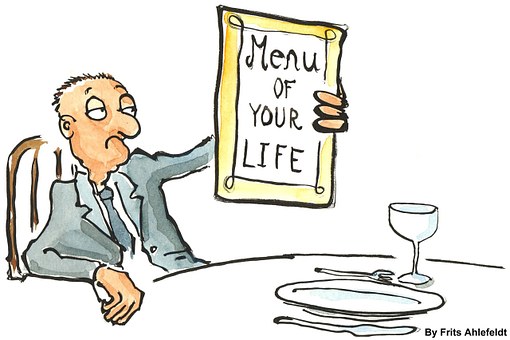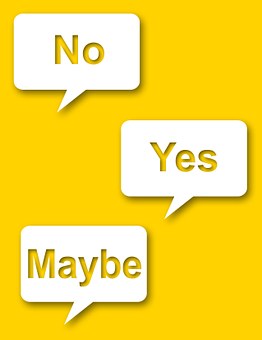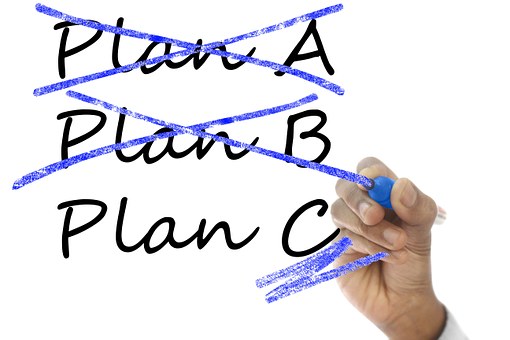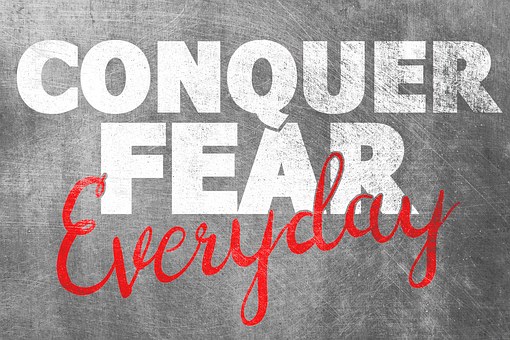When you think about it, life is really a series of decisions threaded together to create experiences that lead to success and happiness. Making decisions is fundamental to the human experience, which is why indecision is stressful.
Are you indecisive? Do you find that you feel anxious when you have to make a decision? Do you defer decisions to others too often? Feeling anxious about making decisions or overcoming serious indecisiveness are negative habits you can eliminate with practice. They are energy drainers and productivity killers. Being decisive is a habit you want to cultivate immediately in order to move closer to the life you’ve imagined joyfully; it frees up time and energy to do more interesting and important things.
If you are trapped in indecisiveness, you should not forget this statement, “a bad decision is better than no decision.” Of course, some decisions are very easy, some are on auto pilot, and others require more time; however, if you have difficulty with even simple decisions, it is important that you trade courage to act over excuses to delay. The tips below will help you do just that. Remember, time is a precious gift that you want to spend doing meaningful things.
Two Concrete Techniques for Dealing with Indecision:
Most decisions do not warrant much time to analyze and act on. When you are stuck on a small matter, it can derail the rest of your schedule for that day. At that point, it is better to use the two minute rule and commit to not spending any more time than that. When you recognize you are waffling over something small, set a two minute timer and make a choice before the timer expires. Try it!
Sure there are decisions that are very important and require more time. It is better to jot those down on a “decisions list” and schedule a later time to address them. Scheduling them allows you to prioritize them (Important/Urgent matrix) and spend the necessary time without interfering with other important tasks. The key here is that the time you spend deciding on the difficult matter will not paralyze you doing the time you should be doing something more important. In addition, you can then tackle it when you have a more calm and positive attitude about it instead of being rushed and fearful.
7 Reasons for Indecision:
Have you ever asked yourself, why am I indecisive? By practicing the two tips above, you are well on the  way to getting unstuck and being more productive. However, one must spend time addressing the reasons for being indecisive. Getting to the root cause will help you sustain the habit of making decisions quickly.
way to getting unstuck and being more productive. However, one must spend time addressing the reasons for being indecisive. Getting to the root cause will help you sustain the habit of making decisions quickly.
When you find yourself taking a long time to make a decision, investigate the why by asking yourself these questions:
1) Are you the true decision maker? Think back and evaluate if someone has always made decisions for you. This may be a life-long habit and now that you are aware, you can change. As an employee, you have a responsibility to meet objectives timely and that requires quality decisions. The manager or supervisor is not the sole decision maker at work. Everyone is a leader in their personal life as well as at work. Whether in life or work, know that you are responsible for making challenging decisions. It is damaging for you to give that power to someone else.
2) Is the goal clear? It helps to jot down what exactly is the outcome you desire. Sometimes we focus on the problem instead of spending the time on the solution. Having an objective statement will bring clarity to the issues and help weed out the noise.
3) Do you have too much or not enough information? Sometime we get stuck in the information gathering and analysis phase. Analysis paralysis is when we have so much information that we get stuck in information overload and can’t see the forest for the trees. In either case, fixing this requires you to organize your information and have a systematic template for evaluating decisions. Be solution oriented by seeking out 2 or 3 options and jotting down the advantages and disadvantages of each.
Here is a template to follow when evaluating solutions:
Objective: what decision do you have to make and why do you have to make it?
Desired Outcome: in an ideal situation, what do you want the situation to look like after the decision is made?
Deadline: when is the deadline for making this decision?
Pros and Cons: what are pros and cons of each option?
Fears: what are your fears?
Courageous Decision: which Solution is your choice and why?
4) Do you lack confidence in the subject? Although you are the decision maker, you can ask for help with gathering information. Seek out experts and ask their advice. Do not depend on them for a decision, only rely on them for information and advice. The only way to truly improve in the area of confidence is to continuously make decisions.
6) Are you uncomfortable with commitment? Leaving your comfort zone is necessary. Know that this is normal and your intentions and your actions as a result is the best you can do. Know that your best is good enough, and whatever the outcome, particularly if it is undesirable, you will bounce back. Keep in mind that there will be times that you will be presented with a choice between two undesirable situations, in those cases, you’ll just have to select the better of the two evils.
7) Is fear a factor? Typically fear seeps in when we mull over the worst that can happen. On the contrary, we need to work on thinking positive. Often times, the perceived outcomes are false evidence appearing real. As long as you are thinking negatively, do not attempt to make a decision. You should move on with something else and then come back to the problem when your mood is positive. Before tackling decision, think about rewarding yourself for the courage to be decisive and take action, not for the outcome.

Overcoming indecisiveness takes a commitment to creating a better version of yourself. Whatever is at the root indecisive, implementing the tips above will alleviate anxiety around decision making. Feel free to leave a comment below, I’m interested in what you think about this topic.
I love your idea for the two minute timer. We actually just went to dinner with some friends tonight and it took a half hour of texts and two phone calls to finally decide on a place to eat. What a waste of time. We should have just set a timer and made a call immediately, I’ll be using this rule in the future.
I so wish you had read this post first 🙂 it would have been a perfect time to practice the two minute rule. Now looking back at the amount of time you wasted, what do you think was the main reason for the delay, was it deferring the decision to someone else or fear of not pleasing your friends? You should make note of it so you can see if there is a pattern. Thanks for sharing a perfect example of how indecision is a time waster.
Great Post on decision making! I know it is so hard for some people to make decisions in their life. I am a retired firefighter/paramedic. My job consisted of making decisions and making them FAST! And often times we did not have 100% of the information available.
I really like the way you broke things down and especially the two minute rule and using a timer.
Clyde, i can only imaging what it must be like to be faced with making so many serious decisions day in and day out. You surely could not be a good firefighter without excellent decision making skills. At the very least, one must trust himself to make the best decision based on the information you have at the time and one’s intuition. Have you met any indecisive firefighters? I believe indecisive people would shy away from that occupation; this is just a guess on my part. Thanks for commenting.
Awesome read! You’ve got some great ways to combat indecisiveness.
I particularly like the evaluating solutions template you’ve provided here. Writing things down can help you visualize where you need to go. The pros and cons can certainly navigate you to the right decision for whatever the task at hand is. I run a retail business, decisions need to be made on the spot and generally this works out. There is no time to think, you just react in some scenarios. However, when making a big decision, we write things down and weight out our options.
The 2 minute rule is something I have never tried but is most certainly an option for those times when you really do not have time. I must try this!
Have you ever written on the creation of a vision board? This too is a very effective way to make decisions with a career path, health goals, travel goals, personal goals and the list goes on! I just completed my first one, and boy did it ever help me make a few big decisions!
Thanks so much for sharing your thoughts. Yes I am a fan and advocate for vision boards. I have created several for different purposes. They do help make decision-making easier since they reveal your true desires and is a visual map of your happiness. They not only aide with making decisions, they keep you focused on staying the course with goals. They are excellent reminders. For example, I have turned down a job “opportunity” that was contrary to what I had put on my vision board. I have also accepted opportunities that aligned with what is on my vision board. Two of my vision boards are posted in my bedroom and one is posted at work; those three I look at daily as a reminder. So absolutely, a vision board will help with big decisions. Thanks for pointing that out.
I have written on visualization techniques but not yet on creation of vision boards. I asked a fellow coach who specializes in vision boards to feature an article on this website on that topic, which just hasn’t happened yet. I’ll have to step up my efforts to get her to do it soon or just do it myself. Thanks for the advice. Much success with your business!
Hi, Claudette! Thanks for sharing this information!
Sometimes I think that I have a problem to make important decisions. I always want to know all information, all aspects, pros, and cons. It takes time.
I love your article and your tips. Thanks! When I would have a problem with decision making, I will remember your article.
Thanks! This is useful.
I’m glad you found the information in this article useful. Thanks for sharing and good luck making quicker decisions by applying these techniques.